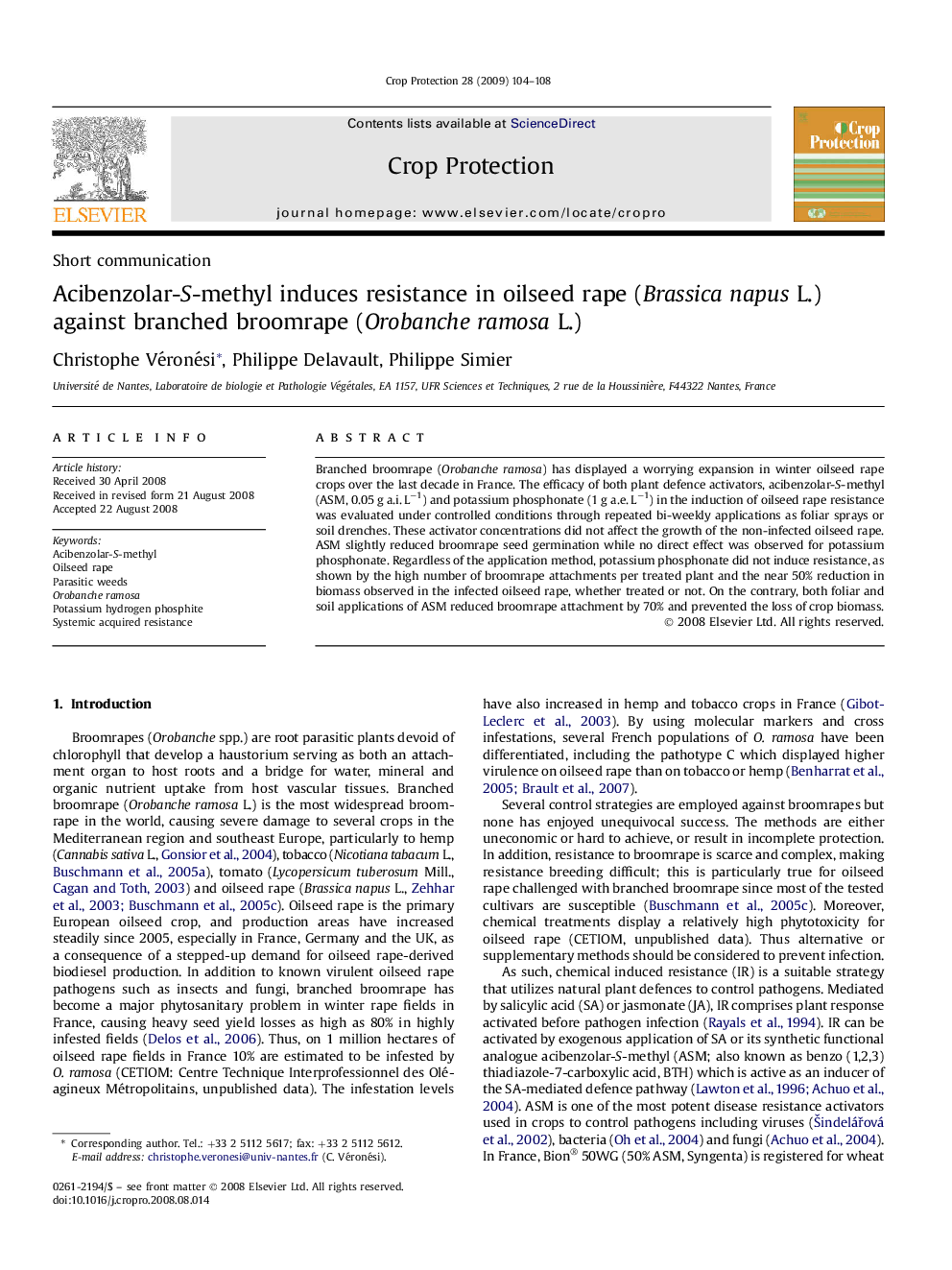| Article ID | Journal | Published Year | Pages | File Type |
|---|---|---|---|---|
| 4507555 | Crop Protection | 2009 | 5 Pages |
Branched broomrape (Orobanche ramosa) has displayed a worrying expansion in winter oilseed rape crops over the last decade in France. The efficacy of both plant defence activators, acibenzolar-S-methyl (ASM, 0.05 g a.i. L−1) and potassium phosphonate (1 g a.e. L−1) in the induction of oilseed rape resistance was evaluated under controlled conditions through repeated bi-weekly applications as foliar sprays or soil drenches. These activator concentrations did not affect the growth of the non-infected oilseed rape. ASM slightly reduced broomrape seed germination while no direct effect was observed for potassium phosphonate. Regardless of the application method, potassium phosphonate did not induce resistance, as shown by the high number of broomrape attachments per treated plant and the near 50% reduction in biomass observed in the infected oilseed rape, whether treated or not. On the contrary, both foliar and soil applications of ASM reduced broomrape attachment by 70% and prevented the loss of crop biomass.
